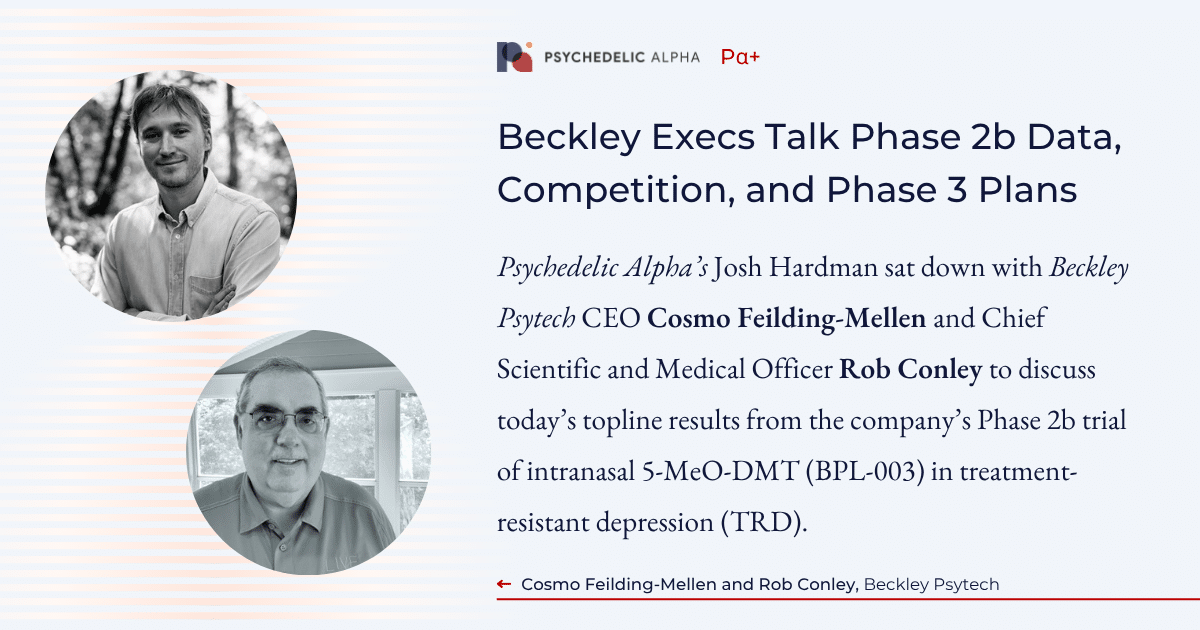Psychedelic Alpha’s Josh Hardman sat down with Beckley Psytech CEO Cosmo Feilding-Mellen and Chief Scientific and Medical Officer Rob Conley to discuss today’s topline results from the company’s Phase 2b trial of intranasal 5-MeO-DMT (BPL-003) in treatment-resistant depression (TRD).
Before you dive into this interview, be sure to read our headline coverage of the results: BREAKING: Beckley’s 5-MeO-DMT Shows Rapid, Durable Antidepressant Effects in Phase 2b Study.
Even though it has been edited for length and clarity, this is still quite a lengthy interview. We have added subheadings for easier navigation.
***
In this Interview
- 8 mg: the Goldilocks dose?
- Is the mystical experience essential?
- Phase 3 study design; ineffability; blinding integrity
- Comparisons to GH Research’s Phase 2b; expectations around a second dose
- Psychological support across Beckley and GH’s studies
- Smaller 8 mg arm; psychedelic naiveté
- How often might patients need BPL-003?
- Monotherapy or adjunctive?
- A faster path to approval under Trump?
- IP position
- Final thoughts
***
To read this 3,500+ word interview, please sign in to your Pα+ account…
Join Pα+ Today
Independent data-driven reporting, analysis and commentary on the psychedelics space: from business and drug development through to policy reform and culture.
Already a member? Log In
✓ Regular Bulletins covering key topics and trends in the psychedelics space
✓ Regular articles and deep dives across psychedelic research, policy and business
✓ Interviews with insiders
✓ Monthly interactive database and commentary on psychedelic patents
✓ Quick-take analysis of major developments
✓ A Library of primers and explainers
✓ Access to our full back catalogue


